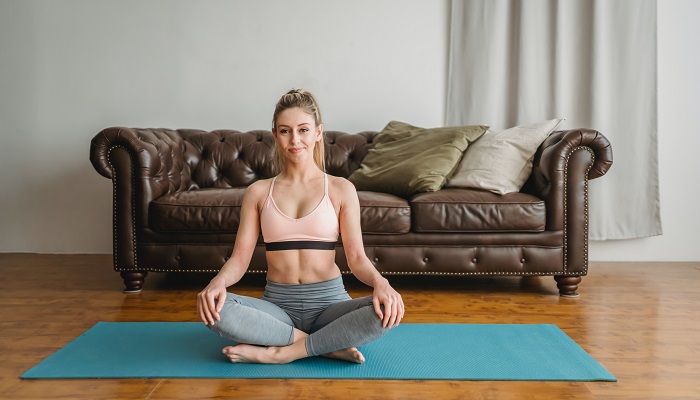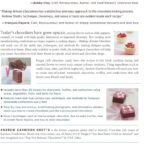Health and wellbeing encompass physical, mental, and emotional balance. It’s essential for living a productive, fulfilling life.
Crafting a lifestyle that nurtures all aspects of health is crucial in today’s fast-paced world. With an increasing awareness of the mind-body connection, individuals seek strategies to boost their overall wellbeing. From eating balanced diets and engaging in regular exercise to practicing mindfulness and self-care, the paths to wellbeing are as diverse as the individuals pursuing them.
Ensuring adequate rest, managing stress, and fostering positive relationships also significantly contribute to maintaining a healthy state of being. In this holistic approach, each aspect of health influences the other, emphasizing the importance of a well-rounded routine for lasting wellness. By emphasizing preventive care and personal growth, anyone can take meaningful steps toward enhancing their health and wellbeing.

Credit: www.hhmglobal.com
The Pillars Of Vibrant Health
Vibrant health rests on certain fundamentals. Like a building, our well-being requires solid support. Just as architects design structures to stand the test of time, we must build our health on firm principles. These principles, or pillars, provide the framework for a thriving life. Today we delve into two key pillars: nutrition and exercise. They keep us strong and full of energy. Health and Wellbeing.
Nutrition: Fueling The Body Right
Good food is like quality gas for a car. It keeps everything running smoothly. Eating colorful fruits and veggies, whole grains, and lean proteins is the secret. Sugary snacks might taste good, but they don’t help much.
- Proteins: Build and repair your muscles.
- Carbohydrates: They are your energy source.
- Fats: They protect your organs.
- Vitamins and Minerals: These keep your body strong.
| Food Group | Examples |
|---|---|
| Fruits | Apples, Bananas, Oranges |
| Veggies | Carrots, Broccoli, Spinach |
| Whole Grains | Brown Rice, Oatmeal |
| Proteins | Chicken, Beans, Eggs |
Exercise: The Keystone Of Vitality
To feel alive and kickin’, your body needs to move. Exercise is more than just gym time. Playing outside, dancing, or swimming counts too! Workouts should be fun, not boring. Health and Wellbeing.
- Strengthen your heart: Helps it pump better.
- Shed weight: Exercise melts fat away.
- Boost your mood: It makes you smile more!
- Clear your mind: It helps you think.
A simple daily walk or a bike ride can do wonders. Aim for 30 minutes a day to keep your heart happy.

Credit: www.facebook.com
Mental Fortitude And Emotional Balance
Mental fortitude and emotional balance stand as pillars for overall health and wellbeing. They enable us to navigate through life’s ups and downs with resilience. A strong mind and balanced emotions lead to a happier, more fulfilling life. In this age of constant stress and challenge, developing these attributes is crucial. Below, we explore key strategies and relationships that foster mental and emotional strength.
Stress Management Strategies
Coping with stress is a skill we can all learn. Effective stress management leads to better mental health. Here are some strategies one might adopt:
- Regular exercise – Keeps the body fit and mind sharp.
- Healthy diet – Fuels the body and influences mood.
- Quality sleep – Restores body and mind.
- Mindfulness and meditation – Calms the mind.
- Time management – Reduces pressure and stress.
Cultivating Positive Relationships
Positive relationships are the cornerstone of emotional support. They form a network of trust and support. Here is why they matter:
- They provide a sense of belonging.
- They offer different perspectives on problems.
- They share in our joys and successes.
- True friends provide honest feedback.
- Good relationships improve our self-esteem.
Fostering strong relationships means investing time and energy in others. This leads to mutual growth and happiness.
Sleep: The Foundation Of Wellbeing
Sleep plays a vital role in good health and well-being throughout your life. Getting enough quality sleep at the right times can help protect your mental health, physical health, quality of life, and safety. The way you feel while you’re awake depends in part on what happens while you’re sleeping. Let’s dive into the importance of sleep and uncover the secrets to resting better.Health and Wellbeing.
The Science Of Sleep
Sleep is more complex than we often think. It’s not just a period when the body shuts off. During sleep, the body is hard at work repairing damage caused by stress, ultraviolet rays, and other harmful exposures. Your cells are producing protein, and your brain is sorting through and processing the day’s experiences.
| Stage | Activity |
|---|---|
| NREM (Non-Rapid Eye Movement) | Energy restoration, muscle repair, memory consolidation |
| REM (Rapid Eye Movement) | Brain activity similar to wakefulness, dreams occur |
Tips For Improved Rest
- Stick to a sleep schedule – Set aside no more than eight hours for sleep.
- Pay attention to what you eat and drink – Don’t go to bed hungry or stuffed.
- Create a restful environment – Cool, dark, and quiet rooms are best.
- Limit daytime naps – Long daytime naps can interfere with nighttime sleep.
- Include physical activity – Regular physical activity can promote better sleep.
- Manage worries – Try to resolve concerns before bedtime.
Lifestyle Choices And Longevity
Your daily habits shape your health and longevity. Making positive lifestyle choices can lead to a longer, healthier life. Experts suggest that diet, exercise, and stress management are key. Some societies live exceptionally long lives. Understanding their secrets can inspire us to make changes. Let’s explore habits to adopt and learn from the world’s longest-living communities. Health and Wellbeing.
Habits To Adopt For A Longer Life
Eating well and staying active are golden rules for a long life. Here are the top habits to consider:
- Eat a balanced diet: Focus on fruits, vegetables, whole grains, and lean proteins.
- Stay hydrated: Drink water throughout the day.
- Moderate exercise: Aim for 30 minutes of activity daily.
- Get enough sleep: Adults should aim for 7-9 hours per night.
- Manage stress: Techniques like meditation and yoga help.
- Avoid harmful habits: Say no to smoking and excess alcohol.
Decoding Blue Zones: Secrets To A Long Life
Blue Zones are areas where people live exceptionally long lives. Here’s what they do differently:
| Area | Diet | Lifestyle |
|---|---|---|
| Okinawa, Japan | Vegetables, tofu, fish | Strong community, garden |
| Sardinia, Italy | Whole grains, cheese, wine | Physical work, family focus |
| Loma Linda, USA | Plant-based, nuts, beans | Religious, value rest |
| Nicoya, Costa Rica | Fruit, squash, maize | Sunshine, socialize, active |
| Ikaria, Greece | Mediterranean, olive oil | Naps, friendships, walking |
These communities thrive on healthy diets, active lifestyles, and solid social networks. They also value rest and purposeful living. Embracing these practices can contribute to a longer and more fulfilling life.
Mindfulness And Spiritual Wellness
Wellness goes deeper than just physical health. It includes a peaceful mind and spirit. Mindfulness and Spiritual Wellness are key to a balanced life. They reduce stress and increase happiness. Now, let’s dive into how to weave mindfulness into daily routines and explore spiritual practices.
Integrating Mindfulness Into Daily Life
Mindfulness means living in the present. It helps to focus and calm the mind. Practicing mindfulness daily can improve mental health. Here are simple ways to be mindful:
- Start with Breathing: Take five minutes each morning to breathe deeply. Focus only on your breath.
- Eat Mindfully: Eat slower. Notice the taste, texture, and colors of your food.
- Single-task: Do one task at a time. Give it your full attention.
- Pause Between Tasks: Take short breaks. Reflect on your feelings and thoughts.
Exploring Spiritual Practices For Inner Peace
Spiritual practices connect you to something bigger. They bring peace and contentment. Try different ones to see what feels right. Consider these practices:
| Practice | Description |
|---|---|
| Meditation: | Sit quietly. Focus on your breath or a mantra. |
| Yoga: | Combine movement, breathing, and meditation. |
| Prayer: | Talk to a higher power. Express gratitude or seek guidance. |
| Journaling: | Write down thoughts and feelings. It brings clarity and understanding. |
Everyone’s spiritual journey is unique. Find practices that resonate with you. They should make you feel peaceful and grounded. Remember, consistency is key in both mindfulness and spiritual wellness.
Navigating Health Information
The journey through health and wellbeing often leads to a vast sea of information. Setting sail on this journey means learning to navigate health information effectively.
Evaluating Sources Of Health Advice
Trustworthy health advice is crucial. To find reliable guidance:
- Consider the source. Use reputable sites with medical credentials.
- Check for evidence. Look for advice backed by scientific research.
- Seek updates. Health advice changes, so find the latest information.
- Spot red flags. Be wary of quick fixes or miracle cures.
Ask experts. Doctors and healthcare providers offer personalized insights.
The Role Of Personalized Medicine
Personalized medicine tailors healthcare to individual needs.
Benefits of personalized medicine include:
- Targeted treatments that work better for the patient.
- Reduced side effects, making treatment easier.
- Efficient care saving time and resources.
By using genetic information, healthcare evolves to suit each person.
Work with healthcare providers to explore these options.

Credit: www.amazon.com
Frequently Asked Questions For Health And Wellbeing
What Are Essential Vitamins For Wellbeing?
Vitamins A, C, D, E, as well as B-complex, are vital for overall wellbeing. They support immune function, bone health, and blood health. A balanced diet typically provides all necessary vitamins.
How Does Sleep Affect Health?
Quality sleep is crucial for physical and mental health. It aids in healing, recovery, and cognitive functions like memory. Adults should aim for 7-9 hours of sleep nightly.
Can Stress Impact Physical Health?
Absolutely, stress can lead to physical symptoms such as headaches, high blood pressure, and chest pain. Chronic stress may also increase the risk of chronic diseases. Managing stress is essential for good health.
What Is The Role Of Hydration In Well-being?
Adequate hydration is key for maintaining bodily functions. It helps in nutrient delivery, digestion, and temperature regulation. Adults should consume about 2 liters, or 8 glasses, of water daily.
Conclusion
Embracing a healthy lifestyle transforms lives. It brings vitality and joy, essential for overall well-being. Prioritize nutrition, exercise, and mental health. Start small with changes for a sustainable journey. Remember, wellness is a personal adventure; forge your path to a thriving life.











